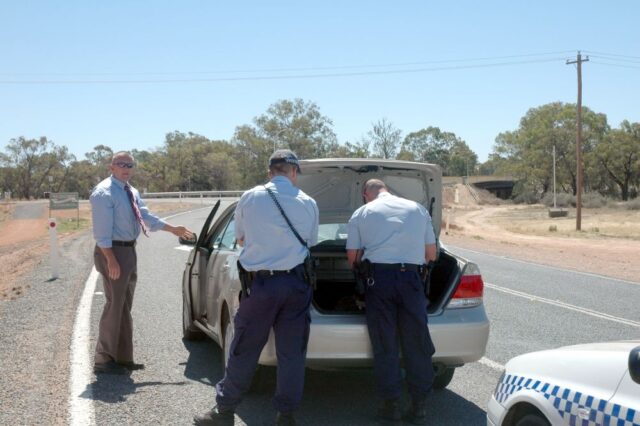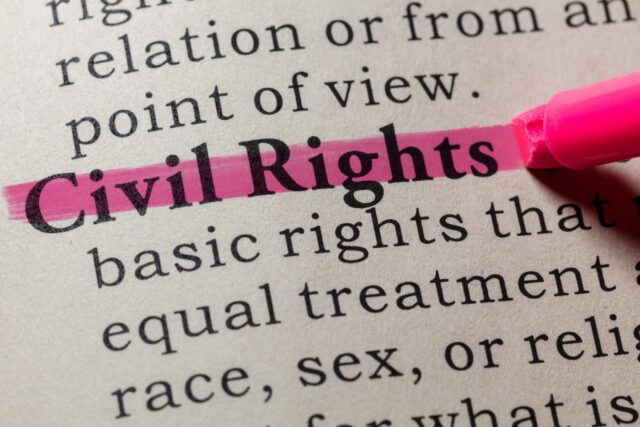
Let’s face it, no one enjoys unexpected police visits to their homes. But as an Australian homeowner, it’s crucial to know your rights when interacting with police, especially during searches.
Being informed about your rights and the legal framework surrounding police searches can help protect your privacy and property and ensure that you’re treated fairly. And hey, guess what? We’ve got you covered.
This guide will walk you through what you need to know about your rights during police searches in Australia.
Understanding the Legal Basis for Police Searches

Let’s get down to brass tacks and dive into the legal basis for police searches in Australia. It’s a bit of a legal maze, but it’s important to understand your rights and responsibilities in this area.
Police officers in Australia are authorized to conduct searches under specific circumstances. Generally, they need a warrant to search your property. However, there are exceptions to this rule.
For instance, police can conduct a warrantless search if they have reasonable grounds to suspect an offense has occurred. This might seem a little complex, but bear with me.
There are several circumstances under which police can conduct searches. The most common scenario is when they have a warrant issued by a court, authorizing them to search a specific property.
However, there are times when a search can be conducted without a warrant. This can occur when there’s an immediate risk to public safety, or if police have reason to believe that evidence may be destroyed or tampered with.
Now, let’s talk about the different types of searches. In Australia, police can conduct general searches, frisk searches, and strip searches. A general search involves searching a person’s clothing and belongings.
A frisk search involves a police officer running their hands over a person’s outer clothing to detect items that may be concealed. Meanwhile, a strip search is more intrusive and involves removing some or all of a person’s clothing.
It’s important to note that strip searches can only be conducted under specific circumstances and with the utmost respect for the individual’s dignity.
Lastly, let’s talk about your rights as a homeowner during a police search. You have certain rights you can exercise, such as requesting police identification and asking to see a warrant if one is required for the search.
It’s important to be aware of these rights so that you can ensure that any police search conducted on your property is lawful and respects your rights as a homeowner.
Your Rights to Privacy and Property Protection

Here’s the lowdown on privacy and property rights during police searches in Australia. The law does recognize your right to privacy in your home, but it doesn’t give you a blank check. There are exceptions to this rule when it comes to police searches.
For example, if there’s an immediate threat or danger, the police may be permitted to enter and search your home without a warrant. But let’s not throw the baby out with the bathwater.
Even though your property rights might be temporarily overshadowed by the need for a police search, it doesn’t mean your belongings can be treated with disregard.
Police searches should strike a balance between the need to investigate a crime and the respect for the occupant’s privacy rights.
Although exceptions exist, such as in cases of immediate threats or danger, it’s generally expected that police searches should be conducted reasonably and with respect for the occupant’s privacy rights. That means no rummaging through your personal effects without a good reason.
In terms of property protection, the police may need to search or even seize certain items as part of their investigation. But that doesn’t mean they can treat your property as if it were their own.
Police must handle your belongings with care and return any seized items once the investigation is concluded. They can’t just take your stuff and never give it back.
Taking steps to safeguard your property during a search is also a smart move. If you’re worried about potential damage or losses, you can take preventative measures like recording any damage or taking photos as evidence.
It might seem like a bit of extra work, but it’s worth it in the long run. After all, it’s your property, and you have a right to protect it.
What You Can and Cannot Do During a Police Search

So, here’s the bottom line: When the police come knocking, you have the right to stand your ground and request identification or a warrant. However, it’s crucial to tread carefully and not overstep. You certainly don’t want to end up in hot water by being charged with obstruction of justice.
When the police arrive to conduct a search, you’re within your rights to ask for their identification. It’s a reasonable request, and you should expect to see some official credentials.
Likewise, if the police need a warrant to conduct the search, you can ask to see it. That said, remember that there are situations where a warrant isn’t required, so it’s always a good idea to be aware of the specifics.
But here’s the rub: While you have rights, there are limits to how far you can go in asserting them. Actions like refusing entry to your property or physically resisting a search can land you in legal trouble, as they may be considered obstruction of justice. It’s a slippery slope, so be cautious about how you handle the situation.
At the end of the day, it’s crucial to assert your rights without breaking any laws. Keep a level head, maintain a calm demeanor, and cooperate with the police. Sure, it’s easier said than done, but it’s the best way to ensure your rights are respected without any legal repercussions.
What to Do If You Believe Your Rights Were Violated

So, you believe your rights were violated during a police search. What do you do now? It’s a situation nobody wants to find themselves in, but if you think your rights were trampled on, it’s crucial to know what steps to take next. Seeking legal recourse may be your best option, and there are several steps you can take to get the ball rolling.
Firstly, you should document the incident. It might seem a bit meticulous, but trust me, it’s worth it. Taking notes on what happened, who was involved, and when it occurred can be invaluable later on.
Gather any evidence you can that might support your claim. Photographs can be particularly helpful, especially if they show any damage to your property or belongings. Remember, the more evidence you have, the stronger your case will be.
Next, you should consider lodging a complaint with the appropriate police oversight body. Every state and territory in Australia has a body responsible for overseeing police conduct. They can investigate your complaint and take action if necessary.
Keep in mind, though, that the process can take time, and the outcome isn’t guaranteed. But it’s a step in the right direction, and it’s worth considering if you believe your rights were violated.
Lastly, it’s a good idea to seek legal advice. Consulting a lawyer can help you understand your rights and what action you can take. They can also provide you with representation if you decide to pursue legal action.
Sure, it might cost a bit, but having a legal expert in your corner can make all the difference. It’s all about getting the justice you deserve, and seeking legal advice is a significant step toward that goal.
Staying Informed and Prepared for Police Searches

Staying on top of the laws and regulations surrounding police searches is a must. With the legal landscape constantly evolving, it’s crucial to keep yourself and your household informed of your rights and what to do if the police come knocking. After all, knowledge is power, and being prepared can make all the difference.
It’s essential to stay up-to-date on the current laws and regulations regarding police searches. Don’t just assume that what was true a year ago is still accurate today. Keep an eye on any changes to the law and make sure you understand how they might affect you and your family. It’s all about being proactive and staying ahead of the game.
Discussing these matters with your family is just as important. Make sure everyone in your household knows their rights and how to assert them lawfully. Sit down together and go over the key points. Discuss what to do if the police come to your door and how to handle a search. It’s essential to make sure everyone is on the same page and knows how to protect their rights.
But it’s not just about knowing your rights – it’s about being prepared. Get your home and documents in order so that you can easily produce any paperwork the police might request. Knowing where to find your identification or property documents can help things go more smoothly during a search.
And let’s face it, the last thing you want is to be scrambling for documents while the police are waiting at your door. So be prepared, stay informed, and make sure your family is in the loop.
Conclusion

Knowing your rights during a police search in Australia is crucial to safeguarding your privacy, property, and personal liberties. While police searches can understandably be nerve-wracking, having a grasp of the legal framework can empower you to handle the situation with confidence.
By staying informed and keeping a cool head, you can find the right balance between working with the police and standing up for your rights.












